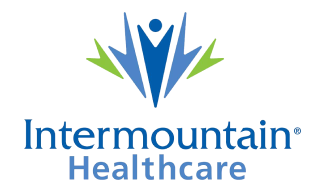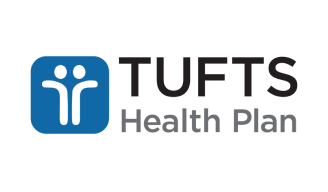Santa Ana, California, United States
The Grove Recovery Community
Verified
Verified
This provider’s information has been quality-checked by Recovery.com’s Research Team for accuracy and completeness, including center verification through appropriate third-party organizations.
Joint Commission Accredited
The Joint Commission accreditation is a voluntary, objective process that evaluates and accredits healthcare organizations (like treatment centers) based on performance standards designed to improve quality and safety for patients. To be accredited means the treatment center has been found to meet the Commission's standards for quality and safety in patient care.
Provider's Policy
Please contact The Grove Recovery Community’s admissions team to hear more about your treatment options and insurance coverage.
Estimated Cash Pay Rate
The cost listed here ($10,000-$15,000) is an estimate of the cash pay price. Center pricing can vary based on program and length of stay. Contact the center for more information. Recovery.com strives for price transparency so you can make an informed decision.
About The Grove Recovery Community
Whether a client needs to stop everything to focus on recovery or they need treatment that can work with their schedule, The Grove Recovery Community offers a wide range of care options to choose from. They treat the person, not the addiction, and recognize that different dependencies come with different challenges, and sometimes require different treatments. They provide tailored programs, including outpatient rehab, intensive outpatient programs (IOP), partial hospitalization programs (PHP), dual diagnosis treatment, and sober living options. Some of the common addictions they treat include alcohol, cocaine, methamphetamine, fentanyl, heroin, and benzodiazepine. They also offer specialized care for co-occurring mental health conditions like anxiety, depression, and eating disorders.
Diverse Therapy Modalities
The Grove Recovery Community views each person who seeks treatment as one-of-a-kind with a unique history defined by genetics, heredity, nature and life experiences. Their customized treatment plans are acutely sensitive to each client’s needs, and can include medication-assisted treatment (MAT), psychotherapy, cognitive behavioral therapy (CBT), and holistic therapies like yoga.
Family-Centered Healing and Continued Care
Treatment at The Grove Recovery Community can include family therapy sessions or education for family members to provide support and understanding, addressing family dynamics that may contribute to addiction. Clients are encouraged to participate in a rotation of ever-changing activities every Saturday. Aftercare programs may include ongoing therapy, support groups, sober living arrangements, mental health services, and access to community resources to maintain sobriety after completing formal treatment.
Rehab in a Home-Like Environment
The Grove Recovery Community looks out over a beautiful hillside in Santa Ana. Clients staying at the center live in private or shared bedrooms with shared bathrooms. An open floor plan for the communal dining and living areas gives ample room for relaxing, and clients also enjoy lounging by the pool, in the hot tub, or strolling in the manicured yard.
Read More
Insurance Accepted
Provider's Policy:Please contact The Grove Recovery Community’s admissions team to hear more about your treatment options and insurance coverage.
Flexible Technology Policies
The Grove Recovery community offers a balanced approach to technology use during treatment. Understanding that technology can play both supportive and distracting roles, The Grove allows clients to maintain important personal and professional connections while ensuring that digital engagement does not hinder their focus on healing. By integrating technology mindfully, The Grove supports a modern approach to recovery that aligns with clients’ diverse needs and lifestyles.
Men-Specific Program Option
At The Grove Recovery Community, clients in the specific program for men find a brotherhood of individuals who understand their struggles and support each other in recovery. The program’s approach focuses on the distinct societal and emotional challenges that contribute to addiction and impact their journey to recovery. The Grove provides individualized therapy, support groups, and educational sessions to help uncover and treat the root causes of addiction, while also equipping clients with the life skills essential for lasting recovery and sobriety.
Medication-Assisted Treatment (MAT)
Medication-assisted treatment can play a crucial role in reducing withdrawal symptoms and cravings, making it easier for clients to focus on their recovery. The Grove Recovery Community’s medical team conducts thorough assessments to determine the most appropriate MAT plan for each individual, closely monitoring their progress and adjusting treatments as needed. By integrating MAT with therapy and other supportive services, they aim to provide a comprehensive and effective treatment experience that addresses all aspects of addiction.
Trauma-Informed Care
The programs at The Grove Recovery Community are trauma-informed, meaning the staff work to inform themselves about each client’s trauma. In doing this, they are better able to help clients and be mindful of the nuances that may trigger unwanted memories, thoughts, and emotions. Compassionate staff help clients safely confront and process past traumatic experiences, fostering healing and reducing the risk of relapse.

Center Overview
Estimated Cash Pay Rate
Executives
Executive treatment programs typically directly support the needs of people who manage businesses and may provide flexible schedules and office space to allow work during treatment.
Men and Women
Men and women attend treatment for addiction in a co-ed setting, going to therapy groups together to share experiences, struggles, and successes.

Treatment Focus
This center treats primary substance use disorders and co-occurring mental health conditions. Your treatment plan addresses each condition at once with personalized, compassionate care for comprehensive healing.

Care Options








Treatment
Specializations
Alcohol
Using alcohol as a coping mechanism, or drinking excessively throughout the week, signals an alcohol use disorder.
Anxiety
Anxiety is a common mental health condition that can include excessive worry, panic attacks, physical tension, and increased blood pressure.
Depression
Symptoms of depression may include fatigue, a sense of numbness, and loss of interest in activities. This condition can range from mild to severe.
Drug Addiction
Drug addiction is the excessive and repetitive use of substances, despite harmful consequences to a person's life, health, and relationships.
Executives
Executive treatment programs typically directly support the needs of people who manage businesses and may provide flexible schedules and office space to allow work during treatment.
Medication-Assisted Treatment
Combined with behavioral therapy, prescribed medications can enhance treatment by relieving withdrawal symptoms and focus patients on their recovery.
Trauma
Some traumatic events are so disturbing that they cause long-term mental health problems. Those ongoing issues can also be referred to as "trauma."
Approaches
Holistic
A non-medicinal, wellness-focused approach that aims to align the mind, body, and spirit for deep and lasting healing.
Medical
Medical addiction treatment uses approved medications to manage withdrawals and cravings, and to treat contributing mental health conditions.
Twelve Step
Incorporating spirituality, community, and responsibility, 12-Step philosophies prioritize the guidance of a Higher Power and a continuation of 12-Step practices.
Therapies
1-on-1 Counseling
Patient and therapist meet 1-on-1 to work through difficult emotions and behavioral challenges in a personal, private setting.
Meditation & Mindfulness
A practiced state of mind that brings patients to the present. It allows them to become fully aware of themselves, their feelings, and the present moment.
Trauma-Specific Therapy
This form of talk therapy addresses any childhood trauma at the root of a patient's current diagnosis.
Rational Emotive Behavior Therapy
A type of cognitive therapy that identifies negative self-defeating thoughts and behaviors, rewriting beliefs to be positive, empowering, and present.
Mindfulness Therapy
This ancient practice can be mental, emotional, and even spiritual. In meditation, you focus your attention on the present moment without judgement.
Adventure Therapy
This experiential approach uses the physical and emotional challenges of outdoor activities as tools for personal growth.
Animal Therapy
Animals can inspire trust and self-worth. In this experiential therapy, guided interactions are used to improve social skills and emotion regulation.
Aromatherapy
Inhaling or topically applying essential oils can help relieve stress, soothe pains, and relieve emotional distress.
Conditions We Treat
Schizophrenia
Schizophrenia is a serious mental health condition that causes hallucinations, delusions, and disordered thinking.
Grief and Loss
Grief is a natural reaction to loss, but severe grief can interfere with your ability to function. You can get treatment for this condition.
Personality Disorders
Personality disorders destabilize the way a person thinks, feels, and behaves. If untreated, they can undermine relationships and lead to severe distress.
ADHD, ADD
ADHD is a common mental health condition caused by dopamine imbalance. Common symptoms include inattention, hyperactivitiy, and impulsivity.
Anger
Although anger itself isn't a disorder, it can get out of hand. If this feeling interferes with your relationships and daily functioning, treatment can help.
Anxiety
Anxiety is a common mental health condition that can include excessive worry, panic attacks, physical tension, and increased blood pressure.
Bipolar
This mental health condition is characterized by extreme mood swings between depression, mania, and remission.
Burnout
Burnout entails mental and physical exhaustion, and leads to a severe lack of fulfillment. This condition is often caused by overwork.
Chronic Pain Management
Long-term physical pain can have an affect on mental health. Without support, it can also impact your daily life and even lead to addiction.
Substances We Treat
Alcohol
Using alcohol as a coping mechanism, or drinking excessively throughout the week, signals an alcohol use disorder.
Benzodiazepines
Benzodiazepines are prescribed to treat anxiety and sleep issues. They are highly habit forming, and their abuse can cause mood changes and poor judgement.
Chronic Relapse
Consistent relapse occurs repeatedly, after partial recovery from addiction. This condition requires long-term treatment.
Co-Occurring Disorders
A person with multiple mental health diagnoses, such as addiction and depression, has co-occurring disorders also called dual diagnosis.
Cocaine
Cocaine is a stimulant with euphoric effects. Agitation, muscle ticks, psychosis, and heart issues are common symptoms of cocaine abuse.
Drug Addiction
Drug addiction is the excessive and repetitive use of substances, despite harmful consequences to a person's life, health, and relationships.
Ecstasy
Ecstasy is a stimulant that causes intense euphoria and heightened awareness. Abuse of this drug can trigger depression, insomnia, and memory problems.
Heroin
Heroin is a highly addictive and illegal opioid. It can cause insomnia, collapsed veins, heart issues, and additional mental health issues.
Psychedelics
Hallucinogenic drugs—like LSD—cause euphoria and increased sensory experiences. When abused, they can lead to depression and psychosis.
Aftercare
Experience
Personal Amenities
Amenities
Special Considerations
Clients can bring their own pet(s)
For greater comfort and healing, pet-friendly treatment centers welcome dogs and animal companions to stay with their owners while they attend treatment.
Pet Friendly
For greater comfort and healing, pet-friendly treatment centers welcome dogs and animal companions to stay with their owners while they attend treatment.
Flexible technology policies
Centers with flexible technology policies allow professionals to stay in touch with work and give patients a greater sense of connection and normalcy.
Gender-specific groups
Patients in gender-specific groups gain the opportunity to discuss challenges unique to their gender in a comfortable, safe setting conducive to healing.
Activities
Yoga
Yoga is both a physical and spiritual practice. It includes a flow of movement, breathing techniques, and meditation.
We love hearing about your treatment experience
Help individuals and families seeking treatment by sharing your first-hand experience with this treatment provider. Review Guidelines.







































